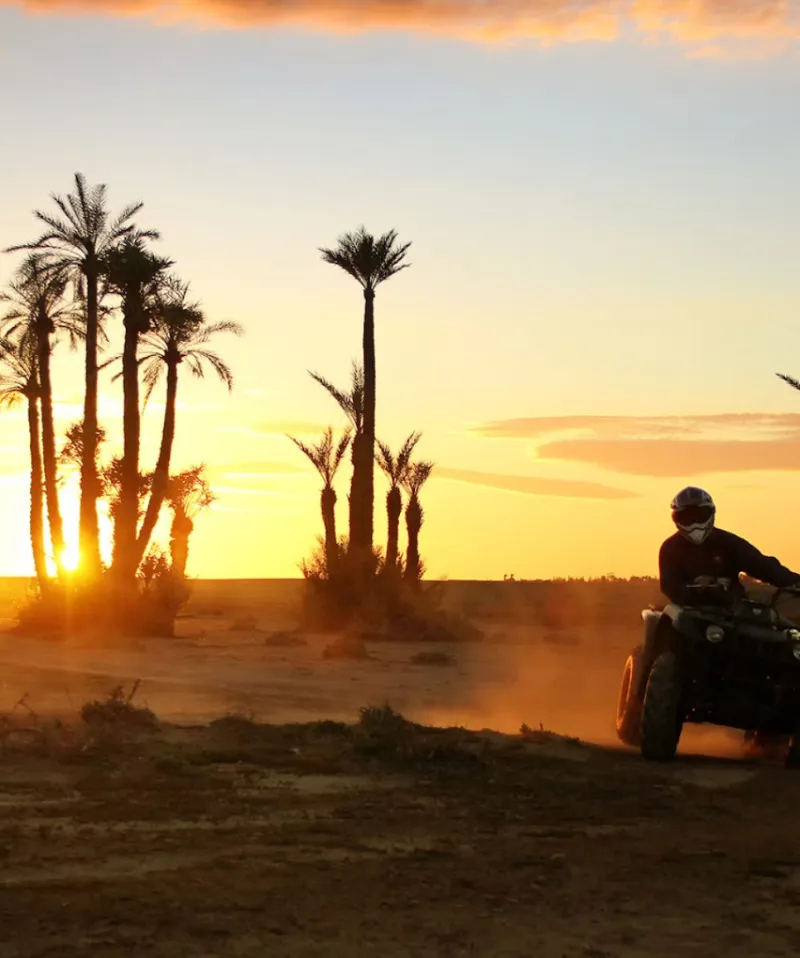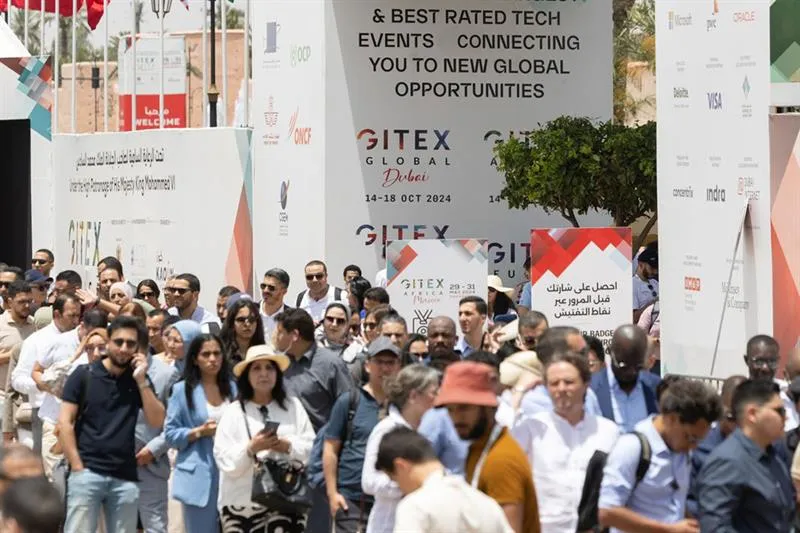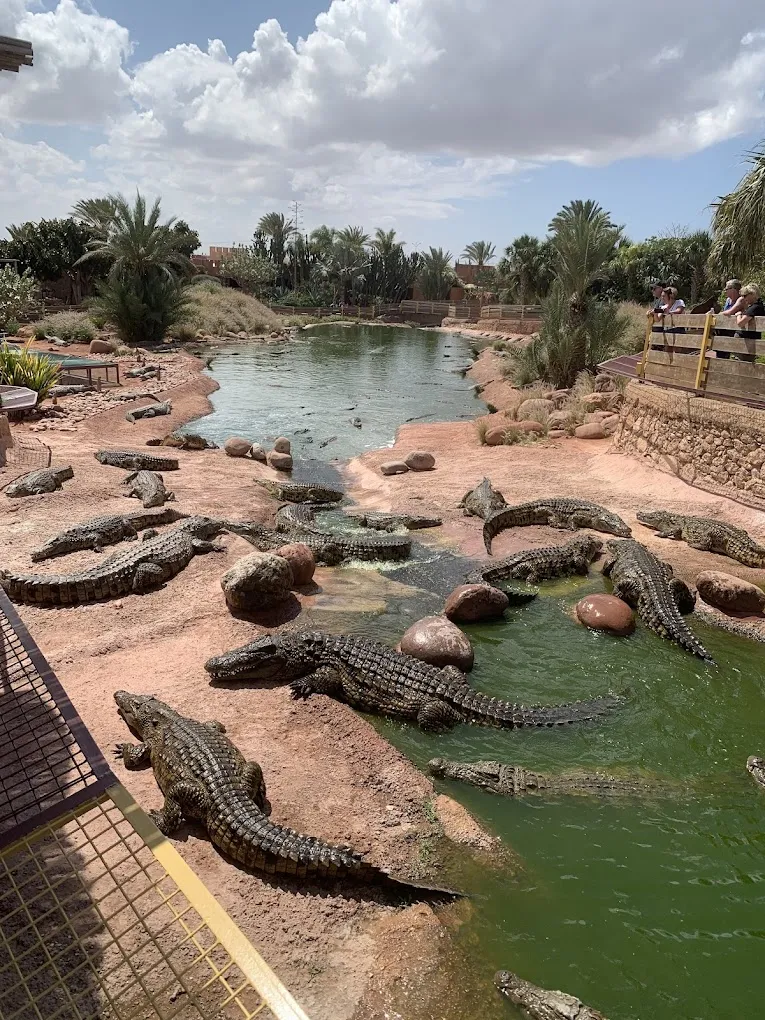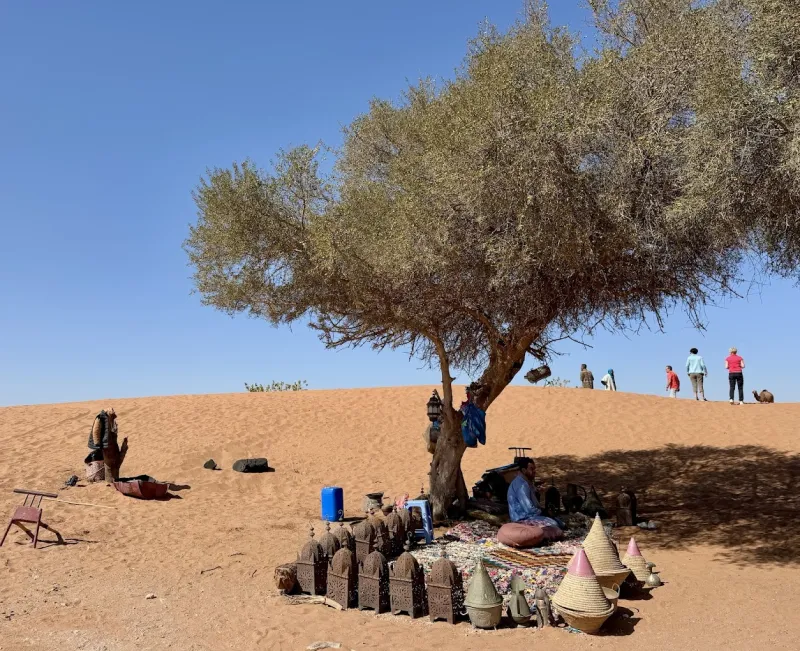Sustainable and Eco-Friendly Tourism in Morocco: Embracing a Greener Future
14 مارس 2025Morocco is fast emerging as a leader in sustainable tourism, where eco-friendly practices and community-based initiatives are transforming the travel experience. This comprehensive guide explores the world of eco-tourism in Morocco, showcasing innovative initiatives, eco-friendly resorts, and community projects that not only preserve the country’s natural and cultural heritage but also empower local communities. Whether you’re a conscious traveler looking to minimize your environmental footprint or an adventurer eager to experience authentic, sustainable travel, Morocco offers a rich array of opportunities to explore its diverse landscapes responsibly.
The Rise of Eco-Tourism in Morocco
A Growing Movement Toward Sustainability
As the global tourism industry shifts toward more responsible practices, Morocco has embraced eco-tourism as a vital part of its economic and environmental strategy. Local authorities, entrepreneurs, and community organizations are collaborating to create experiences that allow visitors to enjoy the beauty of Morocco while protecting it for future generations.
Conservation and Community: Eco-tourism initiatives in Morocco prioritize environmental conservation and the economic well-being of local communities. Projects range from wildlife conservation programs to organic farming cooperatives, all aimed at preserving Morocco’s natural heritage.
Cultural Integrity: Sustainable travel in Morocco is also about celebrating and preserving traditional culture. By involving local artisans and preserving historic sites, eco-tourism ensures that the rich tapestry of Moroccan heritage remains vibrant.
Innovation in Hospitality: Eco-friendly resorts and sustainable accommodations are increasingly popular, offering luxurious yet environmentally responsible options. These establishments use renewable energy, reduce waste, and often incorporate local materials and design traditions.
Eco-Tourism Initiatives: Projects Making a Difference
Community-Based Tourism Projects
Community-based tourism in Morocco is designed to empower local populations by involving them directly in the tourism sector. These projects offer visitors authentic experiences while ensuring that profits stay within the community.
Rural Eco-Villages: In regions such as the Atlas Mountains and the Sahara, rural eco-villages provide accommodations and cultural activities that highlight traditional lifestyles. Guests can participate in local farming, cooking classes, and handicraft workshops, fostering a deep connection with the community.
Fair-Trade Souks: Some initiatives focus on creating fair-trade markets where local artisans can sell their products at sustainable prices. These markets ensure that tourism supports the traditional crafts and livelihoods of Moroccan communities.
Environmental Conservation Programs
Environmental conservation is at the heart of Morocco’s eco-tourism efforts. Several projects are dedicated to protecting the country’s diverse ecosystems—from coastal wetlands to desert landscapes.
Marine Conservation: In coastal areas, programs are underway to protect marine life and rehabilitate coastal ecosystems. These initiatives include sustainable fishing practices and the promotion of responsible water sports that minimize environmental impact.
Reforestation and Renewable Energy: Projects in rural Morocco are investing in reforestation efforts and renewable energy sources, such as solar power. These initiatives not only restore degraded land but also provide sustainable energy solutions for local communities.
Eco-Friendly Resorts and Sustainable Accommodations
Pioneering Eco-Resorts in Morocco
Eco-friendly resorts in Morocco are setting new standards for sustainable luxury. These properties are designed to minimize their environmental footprint while providing guests with a comfortable, immersive experience.
Green Architecture: Many eco-resorts are built using locally sourced, sustainable materials. Traditional Moroccan design elements such as riads and courtyards are integrated with modern eco-friendly technologies, including solar panels, energy-efficient lighting, and water recycling systems.
Organic Cuisine: A growing number of resorts emphasize farm-to-table dining. Guests can enjoy organic, locally sourced meals that celebrate Moroccan flavors while supporting sustainable agriculture.
Wellness and Nature: Eco-resorts often feature wellness programs that include yoga, meditation, and nature-based activities. These initiatives encourage guests to connect with the environment, promoting both physical and mental well-being.
Notable Eco-Friendly Properties
Riad Yima: Located in the heart of the medina, this eco-friendly riad offers a blend of traditional Moroccan hospitality and modern sustainable practices. With energy-efficient systems and a focus on locally sourced ingredients, Riad Yima provides an authentic and environmentally responsible stay.
Kasbah Tamadot: Nestled in the foothills of the Atlas Mountains, Kasbah Tamadot is renowned for its commitment to sustainability. Owned by Sir Richard Branson, this luxury retreat uses renewable energy and supports local communities through various eco-initiatives, making it a model for sustainable tourism in Morocco.
Desert Eco-Camps: In the Sahara, eco-camps provide an immersive desert experience without compromising on sustainability. These camps utilize solar energy, minimize waste, and offer cultural experiences with local nomads, allowing guests to experience the magic of the desert responsibly.
Sustainable Travel Practices for Conscious Explorers
Reducing Your Carbon Footprint
Travelers can take several steps to reduce their environmental impact while exploring Morocco:
Eco-Friendly Transportation: Opt for public transportation, carpooling, or eco-friendly vehicle rentals when traveling between destinations. Many cities in Morocco, such as Marrakech and Fes, have efficient public transport systems.
Minimize Waste: Carry a reusable water bottle, avoid single-use plastics, and support businesses that use eco-friendly packaging. Be mindful of your waste, especially when traveling in remote areas.
Local and Organic: Choose local, organic food options whenever possible. Eating at restaurants that emphasize sustainable practices supports local agriculture and reduces the carbon footprint associated with imported goods.
Respecting Local Culture and Environment
Sustainable tourism is not just about protecting the environment—it’s also about respecting local culture and traditions.
Cultural Sensitivity: Learn about the local customs and traditions before you travel. Dress modestly in traditional areas and always ask permission before taking photographs of people.
Leave No Trace: Practice the Leave No Trace principles by ensuring that you leave natural sites exactly as you found them. Respect local wildlife and avoid disturbing ecosystems.
Support Local Businesses: By purchasing locally made products and dining in family-owned restaurants, you contribute directly to the local economy and help preserve traditional crafts.
The Future of Eco-Tourism in Morocco
Innovative Approaches and Collaborative Efforts
The future of eco-tourism in Morocco is bright, with innovative approaches being developed to enhance sustainability and community involvement. Collaborative efforts between government agencies, private businesses, and local communities are creating a robust framework for responsible tourism.
Public-Private Partnerships: Joint initiatives are emerging to promote sustainable practices across the tourism sector, ensuring that environmental and cultural preservation remain top priorities.
Technology and Sustainability: Advances in renewable energy, water conservation, and waste management are being integrated into tourism infrastructure, setting new standards for eco-friendly travel.
Educational Programs: Eco-tourism also involves education and awareness. Programs that educate both visitors and locals about the importance of sustainability are key to ensuring that Morocco’s natural and cultural treasures are preserved for future generations.
Global Recognition and Impact
Morocco’s commitment to sustainable tourism has garnered international attention, positioning the country as a leader in eco-friendly travel. As more travelers seek authentic and responsible experiences, Morocco’s diverse eco-tourism offerings will continue to grow, benefiting both the environment and the communities that call this remarkable country home.
Conclusion
Sustainable and eco-friendly tourism in Morocco is more than a trend—it’s a movement toward preserving the rich natural landscapes, cultural heritage, and vibrant communities that define the country. From eco-friendly resorts and community-based tourism projects to practical travel tips that help minimize your environmental footprint, Morocco offers a wide range of opportunities for conscious travelers to explore responsibly.
By embracing sustainable practices, both the tourism industry and visitors can work together to ensure that Morocco’s beauty and heritage are maintained for future generations. Whether you’re trekking through the Atlas Mountains, exploring the medinas of ancient cities, or simply enjoying a farm-to-table meal in a luxury eco-resort, every action contributes to a greener, more sustainable future.
Plan your eco-adventure in Morocco today and discover how responsible travel can lead to meaningful experiences that enrich your life and help protect our planet. Embrace the beauty of sustainable tourism in Morocco—where every journey is a step toward a better, more sustainable world.
Embark on your sustainable travel journey in Morocco and witness firsthand how eco-friendly tourism is transforming the travel experience. Explore innovative resorts, support local communities, and enjoy a greener way to discover the magic of Morocco.
Hi, I'm Camila Elise. I'm a passionate writer and design enthusiast at rents.ma, blending modern insights with the timeless elegance of Moroccan culture. Join me as I explore innovative ideas to transform your living space into a true reflection of your style.




